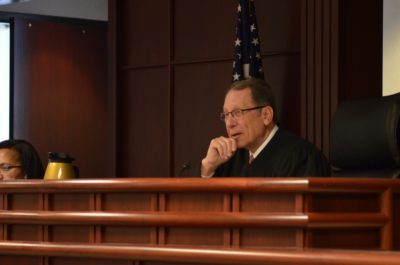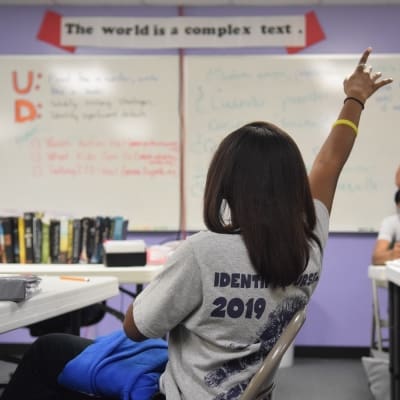

COVID-19 brought tremendous hardship to North Carolina, but it also presents our state with an opportunity to address persistent inequalities. North Carolina maintains a healthy rainy day fund and has received billions of federal dollars in COVID-19 related stimulus funds. Our state leaders should use these resources to make long overdue — and legally required — investments in education that are crucial to our economic recovery. The good news is we can use these funds to support programs that have a track record of success.
K-12 education remains one of North Carolina’s signature issues with long-standing disparities in quality. Leandro v. State of North Carolina, a 1997 State Supreme Court case, twice confirmed North Carolina has not met its constitutional obligation of providing a “sound, basic education” for all students. By law, the state is required to identify and implement recommended changes to the public education system this year.
In 2019, an outside consulting firm summarized, in a lengthy report, ways for the state to comply with the Leandro ruling. Among other things, the so-called “Leandro report” recommended increased state investment in teachers because a high-quality teacher contributes most to a student’s academic success. COVID-19 provides the state an opportunity to meet the Leandro requirements through innovative and cost-effective practices.
For example, North Carolina should entice recent college graduates, struggling in this economy, to find employment as teachers by waiving certification fees and adding bonuses for highly-qualified and diverse individuals to start teaching in high-needs districts or subjects. When Florida waived teacher certification exam fees in April, over 30,000 individuals registered for the exam in a single month.
The state could also host virtual career fairs for prospective teachers and existing educators who may be interested in school specialist or administrative careers. Organizations have long used virtual career fairs to connect with qualified candidates all over the country. With more individuals searching for jobs online during the COVID-19 quarantine, the state could attract those who may not have considered teaching otherwise.
COVID-19 also presents a unique opportunity to establish a robust, online professional development system that can be utilized beyond the quarantine to support a more effective educator workforce. South Carolina, for example, facilitates online mentorship for student teachers working to earn their degree during the pandemic.
Abundant evidence suggests that North Carolina’s educator preparation programs do not produce highly effective teachers to meet growing demand. Preparing teachers to meet the needs of a diverse student body is no easy task, but the Leandro report presented the state with multiple avenues to do so. Now is the time to attract qualified, diverse candidates who likely would not have considered teaching in a better economy.
About 80% of North Carolina’s teachers are white females, yet the majority of students across the state are not white. Think of the teacher who influenced you most — chances are that teacher looked like you. Part of a high-quality education is fostering a diversity of perspectives so that all students can learn about themselves and about the world.
Yet, many North Carolina students receive a limited perspective from a single demographic — white women. Students need teachers who are like them and teachers who are different from them. A “sound, basic education” most certainly has to provide students with both. Let’s take this opportunity to attract the high-quality and diverse educators our students need.
COVID-19 presents the state with an opportunity to creatively address the failings of the public education system. If we do not act now, we will likely face deeper teacher shortages and poor academic performance in the most high-needs schools. Regret of our collective lack of action will make those future problems even more painful.



